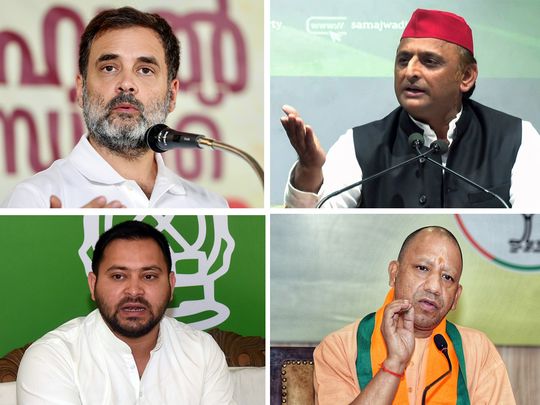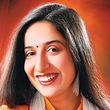
In the rapidly evolving landscape of Indian politics, new leaders are emerging and established figures are adapting to the changing dynamics.
The upcoming elections and shifting political alliances are setting the stage for significant transformations. India’s ruling BJP faces both internal and external challenges, the opposition is finding new momentum. Here is an overview of the key political figures and movements shaping India’s future.
Yogi Adityanath is the second-term Chief Minister of Uttar Pradesh, India’s political make-or-break state, and is only 52 years old. His entire life is 24/7 politics, and this week Mohan Bhagwat, chief of the Rashtriya Swayamsevak Sangh (RSS), added hugely to Yogi’s political capital by having two closed meetings with him in his hometown Gorakhpur, where Yogi is also the Mahant (chief priest) of the Gorakhnath mutt.
This hugely buzz-creating meet came after planted reports suggested that Modi and the BJP would hold Yogi accountable for the BJP’s depleted results in UP. The Sangh Parivar has sent a signal that it unequivocally backs Yogi and sees him as the future leader of the BJP, its political offshoot.
Rahul Gandhi
Rahul Gandhi, Congress leader, 53, is finally tasting elusive political success after having lost two general elections on the trot. Gandhi’s Bharat Jodo Yatra transformed his political image to a leader trying to honestly grapple with the issues faced by Indians today.
More than the image transformation, the walkathon seemed to change Gandhi as a person and as a leader who was earlier perceived as a non-serious politician in politics because of being a fifth-generation heirloom politician. Normally, after every election campaign, Gandhi used to board the next flight out of India to decompress.
The BJP waited eagerly for it, created memes and content, yet despite the record heat in India touching 50 degrees in Delhi, Gandhi has not budged. This may seem a small thing, but to put it in perspective, even his own ally Mamata Banerjee had earlier publicly made fun of Gandhi’s foreign trips and said he barely spent any time in India.
Gandhi 3.0 is finally a Gandhi India seems to be interested in, with his ideas of a caste census and representation based on the census figures gaining traction across party lines and acting as a counter to the BJP’s “Hindutva narrative.”
The unification of what the Sangh has always viewed as the “Hindu Samaj” is the RSS’s civilisational project, and any division of Hindu society because of reservations to Dalits and tribals due to historical cruelty makes the Sangh anxious because it splits the Hindu votes.
Gandhi has finally settled on an issue in the caste census, which is a live wire in the Hindi heartland bellwether states of UP and Bihar. UP represented the nadir of Gandhi and the Congress’s hopes and political dreams, where he even lost Amethi, the family seat, in 2019 to Smriti Irani. Amethi has been regained, and finally, after being a solid BJP citadel, UP is in play again.
Akhilesh Yadav
Akhilesh Yadav, 50, is a former CM of UP and son of the late Mulayam Singh Yadav, a dynast like Gandhi for whom political success remained equally elusive. This time around, Yadav’s tandem play with Gandhi and his masterly “PDA,” the formula of “Pichde, Dalit, Alpanskyak,” which added to his Yadav and Muslim vote base, finally saw him taste success.
Yadav sensed that the Dalit vote had no representation after Mayawati basically abdicated in favour of the BJP from politics and patched together a rainbow backward coalition which defeated the BJP.
Yadav and Gandhi pitched in unison for the caste census and also made impeccable candidate selections, forcing the BJP to taste defeat even in Faizabad, of which Ayodhya and the Ram mandir form a segment.
Tejashwi Yadav
While Gandhi and Yadav were rewarded, the leader who put in the maximum effort in terms of crisscrossing the state of Bihar for public meetings while being on steroid painkillers for a bad back, Tejashwi Yadav, 34, chief of the RJD, suffered a political setback.
But from being seen as Lalu Prasad Yadav’s entitled son, who was catapulted into the deputy CM’s office without being eligible for the job, and a non-serious politician who kept running away to Delhi from Patna to party with his friends and play cricket, Yadav has come a long way.
Yadav is the youngest in the next generation of leaders in India, and along with Gandhi and the UP Yadav, he will play a huge starring role in the next chapter of politics in India.
Yadav is also fully behind a caste census, and in fact, he and Nitish Kumar, Bihar CM, before his latest somersault to partner with Modi, had conducted it in Bihar.
Yogi Adityanath
While the big offices of politics are currently occupied with bold-faced marquee brands, real politics has turned a page, and it is finally the era of the two Yadavs, a Gandhi, and opposing them squarely, Yogi Adityanath. A generational transition is inevitably on the cards and will be transformative for politics.
The war cry of the opposition will be the caste census and proportional representation, and until the Modi-led BJP seeds a fresh Hindutva narrative, the Hindutva juggernaut will face hurdles.
This will be showcased in the upcoming Haryana, Maharashtra, and Jharkhand elections as the Modi-led BJP copes with a simple lack of majority in the centre. Yogi Adityanath represents Hindutva 3.0, which will come against social justice 2.0.
How these leaders perform will impact India’s future.









